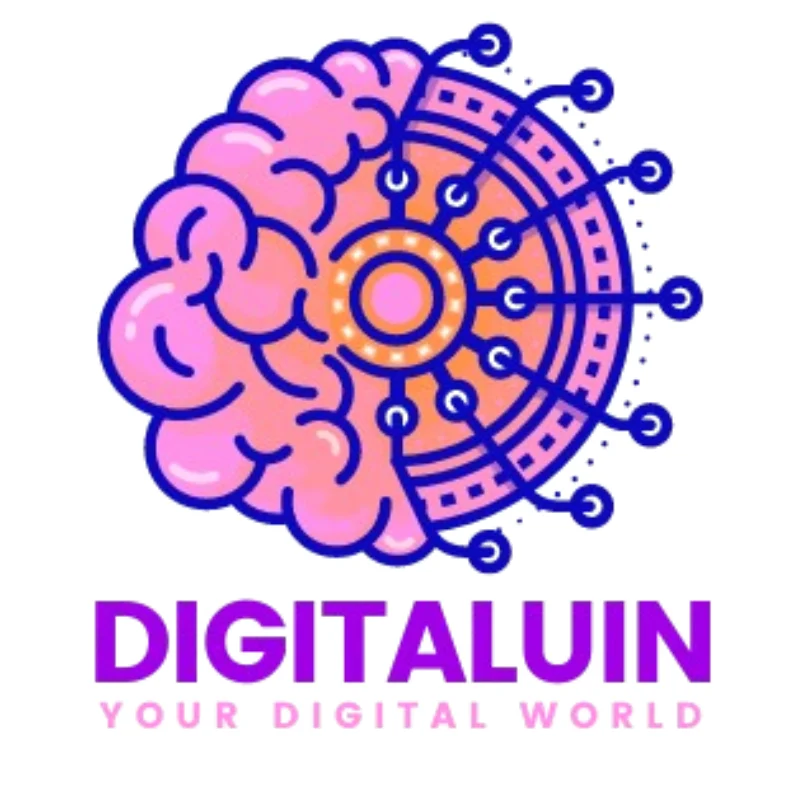Why Learn Artificial Intelligence?
Are you ready to harness the potential of a transformative technology reshaping our world? AI is advancing fast, and knowing its basics is key.
Artificial intelligence systems emulate human reasoning to tackle complex challenges and make informed decisions, adapting and refining their abilities through vast datasets. This innovation isn’t exclusive to large corporations; it’s essential across numerous professions. Learn Artificial Intelligence can make you more efficient, help you make better decisions, and boost your career.

Table of Contents
The Expanding Influence of Artificial Intelligence in Modern Society
Businesses are changing fast, thanks to artificial intelligence. AI is advancing rapidly, significantly impacting diverse industries.
How AI is Transforming Industries
Artificial intelligence is changing the game by automating tasks and making decisions better. In healthcare, AI helps predict diseases and tailor treatments. In finance, it detects fraudulent activities and mitigates financial risks.
AI skills are in high demand, with jobs paying 11% more than others. This is a big deal.
Transportation and logistics are also getting a boost from AI. It optimizes routes and manages supply chains. Machine learning helps companies understand huge amounts of data, guiding their decisions.
The Exponential Growth of AI Technologies
AI’s growth is not slow; it’s exploding. As businesses increasingly adopt AI, its capabilities improve, driven by enhanced algorithms and richer data.
AI’s future is promising, with opportunities in learning environments and creative industries, urging professionals to master AI skills to remain competitive.
Key Benefits of Learning Artificial Intelligence
Learning Artificial Intelligence offers many benefits for your career. AI is changing how businesses work, making it key to know about deep learning and natural language processing. This expertise distinguishes you in a competitive employment landscape.
AI skills improve your technical abilities and help you innovate and work more efficiently. With AI in demand, learning about it can open up many career paths.
Career Advancement Opportunities
Getting good at AI can really help your career. With AI’s widespread adoption, companies seek skilled individuals to leverage its potential. Learning AI can lead to better jobs and higher pay.
Some top career paths include:
- AI/ML Engineer
- Data Scientist
- AI Researcher
- Business Intelligence Developer
Solving Complex Problems
AI helps solve problems that were hard to solve before. With deep learning, you can look at lots of data, find patterns, and make smart choices.
In healthcare, AI helps find diseases better. In finance, it spots fraud. Being able to solve tough problems with AI makes you very valuable.
| Industry | AI Application | Benefit |
|---|---|---|
| Healthcare | Disease Diagnosis | Improved Accuracy |
| Finance | Fraud Detection | Enhanced Security |
| Transportation | Autonomous Vehicles | Increased Efficiency |
Future-Proofing Your Skill Set
Having AI skills keeps your career safe from changes in technology. As AI gets better, people who know how to use it will be needed more.
Mastering AI ensures your expertise remains relevant, bolstering career resilience and unlocking new growth avenues.
Essential Components of Artificial Intelligence
To understand AI, we must look at its key parts. Artificial Intelligence is complex and has many elements. Knowing these is vital for those interested in AI.
AI’s core elements include Machine Learning, Neural Networks, and Language Processing, enabling systems to learn, identify trends, and make strategic decisions.
Machine Learning Fundamentals
Machine Learning (ML) is central to AI, refining algorithms through data exposure, with supervised, unsupervised, and reinforcement learning offering distinct applications.
Deep Learning and Neural Networks
Neural Networks, a subset of ML, power advanced pattern recognition. These networks are like the human brain. They excel in image analysis and voice interpretation.
Natural Language Processing
Natural Language Processing (NLP) lets AI systems understand and create human language. It’s key for chatbots, translating languages, and analyzing texts.
When combined, these elements form adaptive AI solutions capable of handling real-world complexities. Here’s how they interact:
| Component | Functionality | Applications |
|---|---|---|
| Machine Learning | Learning from data | Predictive analytics, recommendation systems |
| Deep Learning | Complex data analysis using neural networks | Image recognition, speech recognition |
| Natural Language Processing | Understanding and generating human language | Chatbots, language translation, text analysis |

Real-World Applications of AI
AI is changing how businesses work. You might use AI every day, like with virtual assistants or personalized tips. As AI expands, its applications enhance efficiency and outcomes across sectors.
AI in Healthcare
In healthcare, AI helps patients and makes things run smoother. It rapidly analyzes medical scans to identify health conditions. AI chatbots also give patients care and support.
AI in Finance and Business
AI is helping in finance and business too. It finds fraud by spotting patterns humans miss. By handling repetitive processes, AI enables professionals to dedicate their time to high-value strategic initiatives.
AI in Transportation and Logistics
In transport and logistics, AI makes things better. By calculating the most efficient paths, it streamlines supply chains while cutting expenses and carbon footprints. AI drives autonomous vehicle development, revolutionizing transportation.
AI in Entertainment and Creative Industries
The entertainment world is using AI too. It suggests movies and shows based on what you like. AI also helps create music and edit films, opening up new creative paths.
AI is used in many areas, showing its wide impact. Exploring AI, you’ll see it’s not just making things better. It sparks innovation and opens new possibilities.
Required Skills for Learning AI
To learn Artificial Intelligence, you need the right skills. You must have a solid base in programming, mathematics, and data analysis. These are key for creating and using AI models.
Programming Languages for AI Development
Python and R are leading languages for AI development. Python is favored for its ease and vast libraries like TensorFlow and PyTorch. These are vital for machine learning.
Mastering these programming languages is essential for handling data efficiently and accurately. The technology streamlines the development and optimization of predictive algorithms for smarter decision-making.

Mathematics and Statistics Knowledge
Understanding mathematics and statistics is key for AI. You should know about linear algebra, calculus, probability, and statistics. They form the foundation of AI algorithm development
Knowing statistics well helps in checking AI model performance. They also streamline data preprocessing for analytics and machine learning.
A Structured Roadmap for Launching Your AI Education
Starting your artificial intelligence learning journey has several key steps. You need a structured approach to dive into AI. This guide will help you start your AI learning journey effectively.
Setting Clear Learning Objectives
Setting clear learning objectives is the first step. Begin by setting clear objectives for your learning journey. This could be understanding deep learning algorithms or developing AI models for a specific industry.
To set effective learning objectives, think about what aspects of AI interest you. Are you into machine learning, natural language processing, or computer vision? Knowing your goals helps tailor your learning path.
Creating a Structured Learning Plan
After setting your objectives, create a structured learning plan. Break your learning into manageable chunks, like weekly or monthly goals. This keeps your studies comprehensive and focused.
A good plan mixes theoretical knowledge with practical application. Use online courses, textbooks, and hands-on projects. Start with AI and machine learning basics, then move to deep learning and neural networks.
Tracking Your Progress
Tracking your progress is key to staying motivated. Regularly check your understanding and application skills. Use tools like quizzes, practical projects, or a learning journal to track your progress.
By monitoring your progress, you can see where you need more focus. Regularly refine your study plan to align with your AI goals.
Top Resources for Learning Artificial Intelligence
To master AI, you need the right resources. They help you understand complex concepts and techniques. Luckily, many resources are available, including online courses, books, and communities.
Online Courses and Certifications
E-learning hubs such as Coursera, edX, and Udemy provide structured AI training programs with industry-recognized credentials. These courses are taught by experts and include real-world projects.
Books and Academic Papers
Books and papers are perfect for those who like to read. “Deep Learning” by Ian Goodfellow is a great introduction to AI. You can find the latest research on platforms like arXiv and ResearchGate.
Communities and Forums
AI communities and forums are great for connecting with others. Sites like Reddit’s r/MachineLearning and Stack Overflow are perfect for asking questions and sharing knowledge. GitHub acts as a versatile hub for developers to jointly refine code, exchange ideas, and accelerate project workflows seamlessly.
Practical Projects to Build Your AI Skills
Working on real-world projects can greatly improve your AI skills. Practical experience is key to understanding and using AI to solve tough problems. Start with simple projects and then move to more complex ones. This way, you’ll get a full grasp of AI and robotics.
Beginner-Level AI Projects
Beginner projects introduce you to AI basics. You can build a simple chatbot, create a basic image classifier, or make a recommendation system. These projects teach you the basics of AI and machine learning.
Intermediate Projects
After mastering beginner projects, you’re ready for intermediate ones. These include tasks like natural language processing, object detection, or predictive analytics. Intermediate projects deepen your knowledge of AI techniques and their uses.
Advanced AI Implementation
Advanced projects tackle complex AI tasks. You might work on autonomous vehicles, sophisticated chatbots, or large-scale recommendation systems. These projects need a strong grasp of AI and robotics, along with advanced programming and problem-solving skills.

Ethical Considerations in Artificial Intelligence
AI is becoming a big part of our lives, and we need to think about its ethics. It’s used in data analysis and automation, raising big questions. We must make sure it’s used responsibly.
The ethics of AI are complex and involve many aspects. We must consider how AI affects people and society.
Bias and Fairness in AI Systems
Bias and fairness are major concerns with AI. Flawed or prejudiced training data can amplify errors in AI systems, leading to harmful outcomes. Ensuring AI operates ethically and equitably is critical.
Privacy Concerns
Privacy concerns are also big issues with AI. AI uses a lot of personal data, which raises privacy worries. We need strong data protection to keep our privacy safe.
Responsible AI Development
Ethical AI practices are vital for addressing moral challenges. It means designing AI with ethics in mind and using it wisely.
Navigating Obstacles in AI Learning and Strategies to Succeed
Starting your journey in artificial intelligence can be tough. You’ll encounter hurdles that could impede progress. It’s key to know these obstacles and how to beat them to succeed.
Technical Difficulties
One big hurdle is technical issues. AI uses complex algorithms and programming languages that can be hard for newbies. Begin with basic programming and then tackle harder topics. Online resources and coding groups can offer great help.
Information Overload
There’s so much info on AI, it can feel like too much. Develop a focused study plan emphasizing key AI principles. Prioritize core objectives and resist overcomplicating the process with unnecessary intricacies.
Staying Motivated
Keeping your motivation up is another big challenge. Set realistic goals and celebrate your wins. Being part of AI communities and working on real projects can keep you excited and engaged.
| Challenge | Strategy to Overcome |
|---|---|
| Technical Difficulties | Start with basics, use online resources |
| Information Overload | Create a structured learning plan |
| Staying Motivated | Set clear goals, join AI communities |
By knowing these common challenges and how to tackle them, you can make your AI learning journey more effective and rewarding.
Conclusion: Embracing the AI Revolution
AI is changing how we live and work. By learning about AI and deep learning, you can lead this change. This expertise positions you as a leader in technology.
AI offers many chances to solve big problems and drive new ideas. As AI grows, joining this journey can lead to new jobs and personal growth.
To be part of the AI revolution, you must keep learning and adapting. This way, you help shape the future. Leverage AI to drive positive global change.







